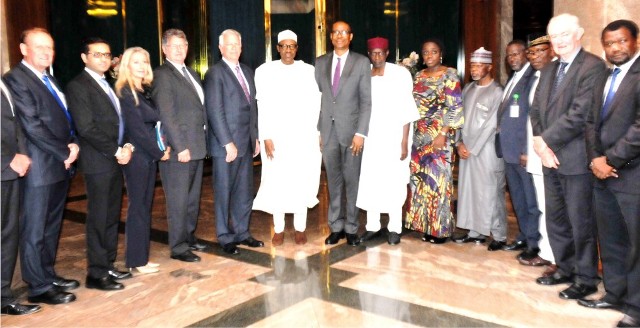Business
Indonesia, Nigeria’s Trade Volume Falls To $1.75bn

The Indonesian Ambassador to Nigeria, Amb. Harry Purwanto, said the volume of trade between Nigeria and his country reduced to 1.75 billion dollars in 2015 from four billion dollars in 2014.
Purwanto made this known in an interview with newsmen in Abuja yesterday.
He said that the signing of economic and technical agreement in 2001 had been of benefit to both countries, but added that interactions between the countries were slowing down.
“From 2001 till now is some period of time and I think up till 2014, there are many things we have done in following up our technical and economic agreement.
“However, after 2014, because of difficulties in the global economy, both countries have focused on their domestic affairs and it looks like the interaction between our countries is slightly slowing down.
“And what we have seen are more explorations rather than manifestations of real and concrete cooperation between two countries.
“It is rather discouraging because in 2014, our trade with Nigeria was almost four billion U.S. dollars.
“In 2015, it went down to about 1.75 billion U.S. dollars because of, perhaps, the oil prices and the global difficulties in economic and financial times.
“From January to June last year, trade on both sides was about one billion U.S. dollars, but this year from January to June, it is going down to less than 800 million U.S. dollars.
“The other thing is perhaps the transition in Nigeria, the change of government, and in Indonesia we did have our new government in late 2014 and we also transitioned; we already have two cabinet reshuffles.
“The new administrations need to learn and see what is on the files before they leap forward,” he said.
The envoy said that the Nigeria-Indonesia Commercial Association facilitated investment opportunities among businessmen of both countries.
He also explained that both countries shared similarities that formed the background of mutual relations between them, and added that efforts were being made to sustain existing relations.
He, however, called for more collaboration that would promote stronger business ties for both parties.
“Before 2013, there was a Nigeria-Indonesia Chamber of Commerce in Lagos which was very active but the Nigeria-Indonesia Commercial Association was formed when our president visited Nigeria in 2013.
“This year, we have brought Indonesian trade missions to Nigeria twice to get new partnerships and also to see possibilities of increasing our trade balance between our two countries.
“We share many commonalities – the youth potential between our two countries economically and we both share ideas on political outlook.
“We put our focus on the high potential of the two countries and we want to transfer these modalities into mutual progress and prosperity for both countries and also find solutions for international challenges.
“That is why, on our part, we try to encourage more interaction between the business communities of the two countries.
“We want to see a stronger organisation or forum of Nigerians who can be vehicles and motivators to encourage more of the Nigerian business community to see opportunities in Indonesia and explore more businesses bilaterally,” he said.
Purwanto said that the provision of the Memorandum of Understanding for a Joint Commission of Cooperation established in 2013 between both countries was “already adequate”.
He said that the first meeting of the joint commission was held in 2013, adding that the next meeting was expected to have held in Nigeria in 2015.
“Patiently we will wait until there is a hint from Nigeria to host the second joint commission because in the commission, we are not only represented by the government side but the private sector,’’ he said.
The envoy expressed Indonesia’s interest to enhance cooperation in the areas of science and technology, agriculture, and industry.
Transport
Automated Points Concession : FAAN Workers Gave 72hrs To Revise Decisions In PH

Transport
FAAN Announces Pick-Up Points for Go-Cashless Cards

Business
Fidelity Bank To Empower Women With Sustainable Entrepreneurship Skills, HAP2.0
-

 News4 days ago
News4 days agoAmend Constitution To Accommodate State Police, Tinubu Tells Senators
-

 Politics4 days ago
Politics4 days agoSenate Urges Tinubu To Sack CAC Boss
-
Business4 days ago
Crisis Response: EU-project Delivers New Vet. Clinic To Katsina Govt.
-
Business4 days ago
President Tinubu Approves Extension Ban On Raw Shea Nut Export
-

 News4 days ago
News4 days agoDisu Takes Over As New IGP …Declares Total War On Corruption, Impunity
-
Business4 days ago
Fidelity Bank To Empower Women With Sustainable Entrepreneurship Skills, HAP2.0
-
Business4 days ago
President Tinubu Extends Raw Shea Nuts Export Ban To 2027
-
Sports4 days ago
NDG: Rivers Coach Appeal To NDDC In Talent Discovery

